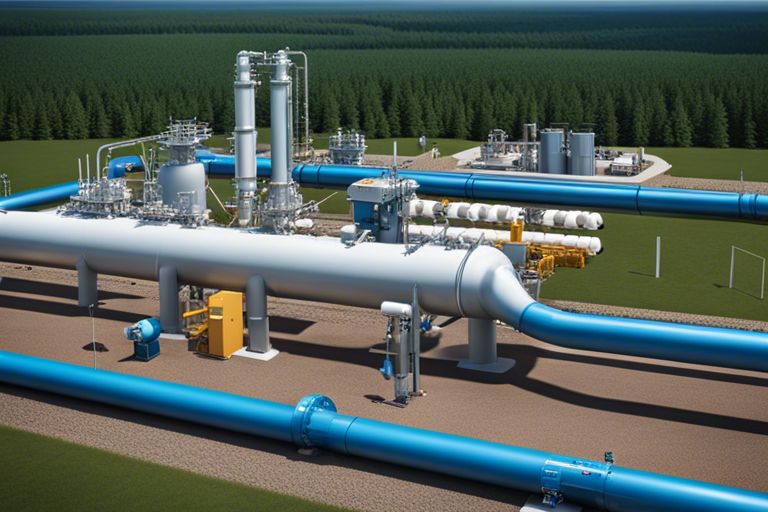Oil plays a crucial role in shaping the economy of Oklahoma City, impacting various sectors in both positive and negative ways. As one of the largest oil-producing states in the U.S., Oklahoma City heavily relies on the oil industry for its economic growth. The fluctuation in oil prices directly affects the city’s economy, leading to either prosperity or downturns. Understanding the impact of oil on Oklahoma City’s economy is imperative for both residents and investors to navigate the dynamic market conditions effectively.
Key Takeaways:
- Oil Industry Dominance: Oklahoma City is heavily reliant on the oil industry, with many companies and jobs tied to the exploration, production, and distribution of oil and gas.
- Economic Vulnerability: The city’s economy is particularly sensitive to fluctuations in oil prices, with downturns in the industry leading to job losses and reduced economic activity in the region.
- Boom-and-Bust Cycle: Oklahoma City has experienced the cyclical nature of the oil industry, with periods of prosperity followed by downturns that have a significant impact on the local economy.
- Diversification Efforts: Efforts are being made to diversify the city’s economy beyond oil and gas, with a focus on industries such as technology, aerospace, and healthcare to reduce dependency on the oil industry.
- Importance of Oil Industry: Despite diversification efforts, the oil industry remains a crucial pillar of Oklahoma City’s economy, contributing significantly to employment, tax revenue, and overall economic growth.
Historical Perspective
Development of the Oil Industry in Oklahoma City
Clearly, the development of the oil industry in Oklahoma City played a crucial role in shaping the city’s economy. In the early 20th century, oil was discovered in the region, leading to a boom in oil exploration and production. This led to the establishment of numerous oil companies and refineries in the area, solidifying Oklahoma City’s status as a major player in the oil industry.
Evolution of Economic Impact Over Time
Any industry with such a rich history is bound to have a significant economic impact over time. The oil industry in Oklahoma City has gone through various phases of growth, downturns, and technological advancements, all of which have affected the city’s economy in different ways.
Evolution of extraction techniques, market demand, and regulatory changes have shaped the economic impact of the oil industry in Oklahoma City. While periods of prosperity brought wealth and job opportunities, downturns resulted in layoffs and economic instability. The city has had to adapt to these fluctuations, diversifying its economy while still heavily relying on the oil sector for revenue and employment.

Current Oil Impact
Contribution to Gross Domestic Product (GDP)
Some analysts consider the oil sector as a significant contributor to the overall economy of Oklahoma City. The oil industry plays a vital role in generating revenue and supporting other sectors within the city.
Employment and the Oil Sector
For decades, the oil sector has been a major source of employment in Oklahoma City. The industry provides jobs not only in direct oil extraction but also in supporting industries such as transportation, manufacturing, and professional services.
A crucial point to note is that fluctuations in oil prices can have a direct impact on employment levels in the city. During times of low oil prices, there may be layoffs and reduced hiring in the sector, leading to ripple effects on the overall economy. However, when oil prices are high, the sector thrives, creating more job opportunities and boosting economic growth.

Challenges and Opportunities
Environmental Concerns and Regulation
All industries associated with oil production in Oklahoma City face Environmental Concerns and Regulation due to the impact on air and water quality, and potential threats to public health. Strict regulations are in place to ensure that companies comply with environmental standards and minimize their ecological footprint.
Technological Advancements and Economic Diversification
Challenges arise as the oil industry in Oklahoma City seeks to adapt to Technological Advancements and Economic Diversification to stay competitive in a rapidly changing market. Embracing new technologies such as fracking and horizontal drilling can present opportunities for increased production efficiency and cost-effectiveness.
Regulations play a crucial role in ensuring that technological advancements are used responsibly, protecting the environment and public health. The implementation of innovative technologies can also lead to the diversification of the economy, as new industries emerge to support and capitalize on these advancements.
To wrap up
With this in mind, it is evident that the oil industry plays a significant role in the economy of Oklahoma City. The city’s economy is closely tied to the boom and bust cycles of the oil market, with fluctuations in prices having a direct impact on revenue and job creation. While the industry brings economic prosperity, it also faces the challenge of environmental concerns and the need for diversification to reduce vulnerability to market volatility. Overall, the oil impact on the economy of Oklahoma City highlights the importance of adapting to changing circumstances and seeking sustainable solutions for long-term growth and stability.
FAQ
Q: What is the impact of oil on the economy of Oklahoma City?
A: The oil industry has a significant impact on the economy of Oklahoma City. It is a major driver of employment, investment, and overall economic growth in the region.
Q: How does the oil industry contribute to job creation in Oklahoma City?
A: The oil industry in Oklahoma City creates thousands of jobs in various sectors such as drilling, production, transportation, and refining. These jobs provide opportunities for local residents and contribute to the city’s unemployment rate.
Q: What role does the oil industry play in attracting investments to Oklahoma City?
A: The presence of a robust oil industry in Oklahoma City attracts investments from both domestic and international companies looking to capitalize on the region’s resources. These investments stimulate economic growth and create additional business opportunities.
Q: How does the oil industry impact the real estate market in Oklahoma City?
A: The oil industry can have a significant impact on the real estate market in Oklahoma City. When the industry is thriving, there is an increased demand for housing and commercial properties, leading to rising property values and increased construction activity.
Q: What are the risks associated with the dependency of Oklahoma City’s economy on the oil industry?
A: One of the main risks of relying heavily on the oil industry is the volatility of oil prices. Fluctuations in oil prices can have a direct impact on the local economy, leading to job losses, reduced investments, and overall economic instability.
Q: How does the oil industry in Oklahoma City contribute to the city’s overall tax revenue?
A: The oil industry in Oklahoma City generates significant tax revenue for the city through various channels such as property taxes, sales taxes, and severance taxes. This revenue is necessary for funding public services and infrastructure development.
Q: What measures are being taken to diversify the economy of Oklahoma City away from its dependency on the oil industry?
A: To reduce the city’s dependency on the oil industry, efforts are being made to diversify the economy by attracting investments in other sectors such as technology, healthcare, and tourism. This diversification strategy aims to make the economy more resilient to market fluctuations and create a more stable business environment.




